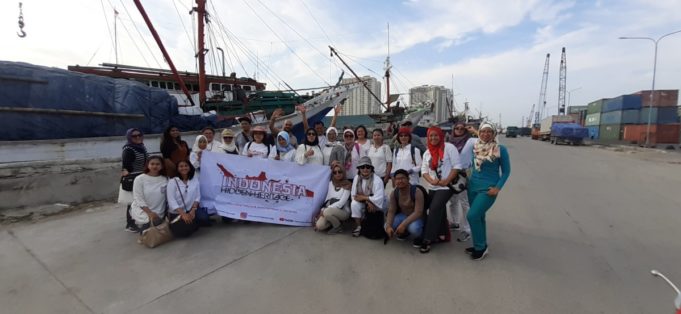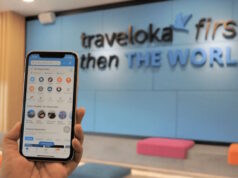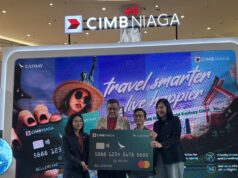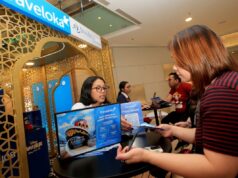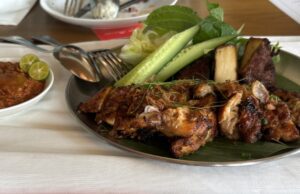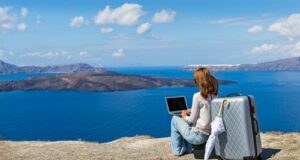BUS TransJakarta approaches the final stop, City Stop. As usual, This stop is never quiet. Passengers milling about. On a number of bus stops, a trade transaction occurs.
There are indeed many food and clothing merchants there. In front of me there are hallways and stairs. A little crammed, I walked down the aisle and then walked up the steps in front of him.
My final destination is Museum Bank Indonesia. This is the gathering point for the participants of the ‘Wall of Batavia - Batavia by Bike’ tour held by Indonesia Hidden Heritage (IHH). To get there, I have to walk first to the nearby Bank Mandiri Museum. After that, continue the trip to the Bank Indonesia Museum.
From a distance looks ancient white-painted buildings. The high-ceilinged building looks sturdy. The pillars look stout. A special feature of the Dutch Colonial heritage building. I walked alone towards the old building.
That day, Saturday afternoon in January, many people take a trip to the Old City. They packed the area nicknamed the Asian Jewel. After walking, I arrived at the Bank Indonesia Museum. Some tour participants have arrived first. That afternoon I along with other IHH administrators were tasked with guiding them to explore the Old City.
"Afternoon, friends,"I said hello.
"Afternoon, Ms. Wulan,"Said one participant.
After greeting each other, we talked for a while while waiting for all participants to arrive.
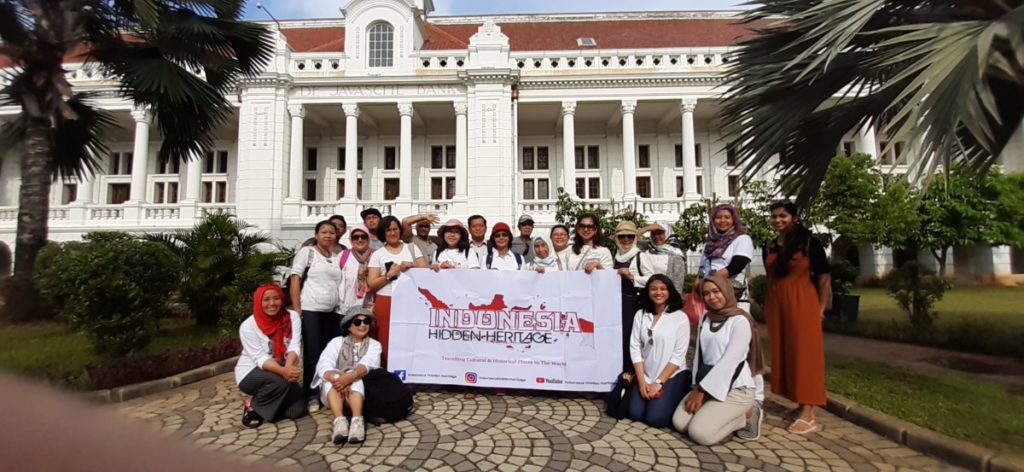
1,5 Clock at the Bank Indonesia Museum
We talked for a while while waiting for all participants to arrive. After 25 attendees present, exploration of the Old City or Old Batavia begins. Exploration starts from the Museum of Bank Indonesia.
A few days before the tour began, IHH first sent a notification letter to visit the Museum of Bank Indonesia and we got a free ticket. Armed with free tickets, we entered the museum accompanied by a guide from the museum.
The guide is a friendly man, workmanlike, Ridiculing and always responsive to answer questions from community members. The cultural relics of De Javasche Bank are standing upright in the middle of the Old Town area. In a floored building 2 that visitors will get additional insight about the economy, monetary and banking. Public communication about BI policies has also been carried out there.
Almost 1,5 hours we enjoyed every inch of the room and collection of the Bank Indonesia Museum. During the tour, satisfied and carefree faces emanated from all participants. After exploring the museum, I and other IHH managers provided snacks and soft drinks to the participants.
Then the journey continues with the rest of the Wall of Batavia in the back of the museum, near the parking lot. Although covered in glass, I and all participants can see the ruins of the wall that once fortified the City of Batavia.
Not many visitors know this wall because its position is hidden in the back of the Old City area. Even, not much information about the castle ruins.
Ride Ontel Bicycles
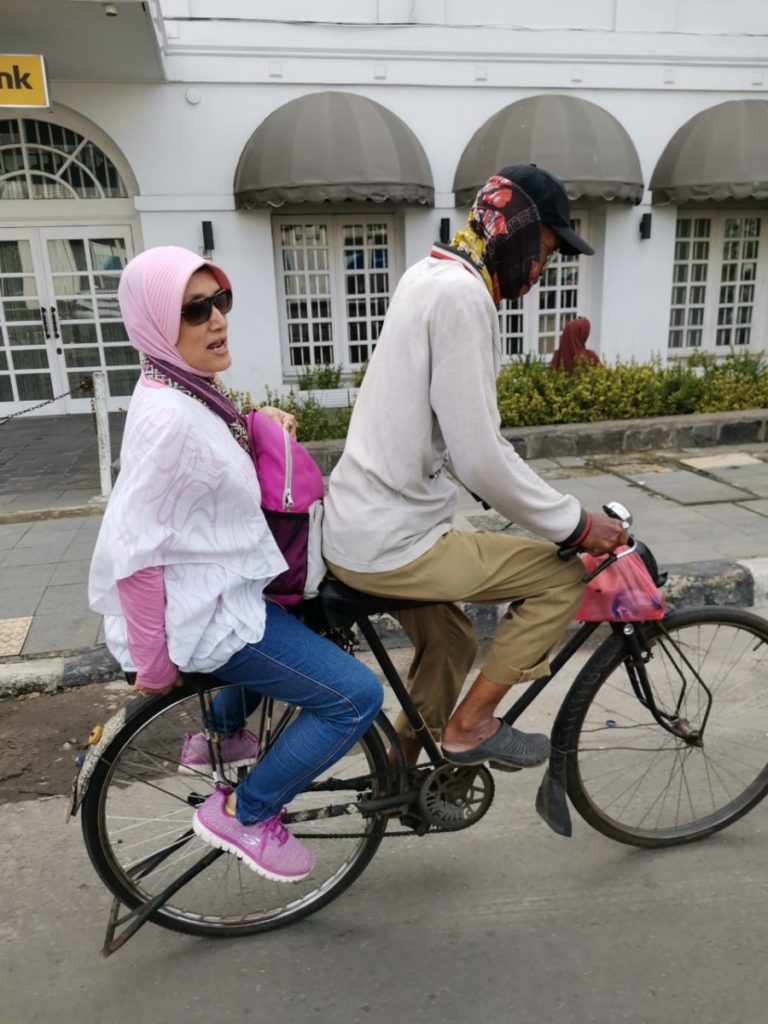
After exploring the castle ruins, the moment the participants had been waiting for arrived. Down the Old City using an old bicycle, ontel.
More than 25 the ontel driver was waiting for us to drive us around. The hubbub happened due to the high enthusiasm of the participants to ride ontel. Not a few participants who couldn't wait to get on the old bicycle immediately.
The cheerful laughter of the participants was heard during our convoy using ontel. There are participants who are the first to ride ontel and feel alarmed. The other participants just laughed at his panic. There were also participants who were busy capturing every corner of the city with their cameras or cellphones. Our first stop was the Marine Museum.
A breeze accompanied us when the bicycle drove. We also visited the Syahbandar Tower or Uitkijk built on 1839. Syahbandar is a monitoring tower to monitor ships coming in and out of Batavia by sea. At that time participants were divided into 3 groups in order to go up the tower alternately. The tower is not so large that it is impossible 25 participants go up at once.
The Syahbandar Tower eviction ends after all participants have finished descending from the tower. Time to move on. Sunda Kelapa Harbor is the second destination to use ontel. Not a few participants forgot about the bike and the rider's face.
There is a ride ontel different and only realized when the original passenger approached. This makes them feel ticklish and finally laughs freely. However, finally everything went smoothly and we arrived at Sunda Kelapa Harbor smoothly.
This port has been popular since centuries 12 and became one of the economic backers of the Pajajaran Kingdom. There the participants looked cool taking pictures and chatting with the workers on the boat.
Visit Queen Juliana's Bridge
Juliana has been the queen of the Dutch Kingdom since 1948 to 1980. He acknowledged Indonesian sovereignty after meeting Mohammad Hatta in the completion of diplomacy at the Round Table Conference in The Hague at 1949.
His name was immortalized as the name of the bridge. Ratu Juliana Bridge is the next destination. From Sunda Kelapa Harbor, travel takes time around 20 minutes using ontel.
Now, the bridge has changed its name to Kota Diamond. The history of the bridge that was built on 1628 it's quite long. Initially called Engelse Burg or English Bridge. Had been damaged when there were attacks from Banten and Mataram troops.
In year 1930, the Dutch government rebuilt the bridge and was named Hoederpasarburg or Chicken Market. On 1655, the bridge was repaired and named Het Middelpunt Burg or the Central Bridge. Then changed its name again to Queen Juliana Bridge when she was in power. Since the proclamation of independence, the bridge was renamed the Kota Diamond Bridge according to the name of its location. At the beginning of its construction, This bridge is located right at the end of the stronghold or the Bastion Diamond of Batavia Castle.
Red Shop
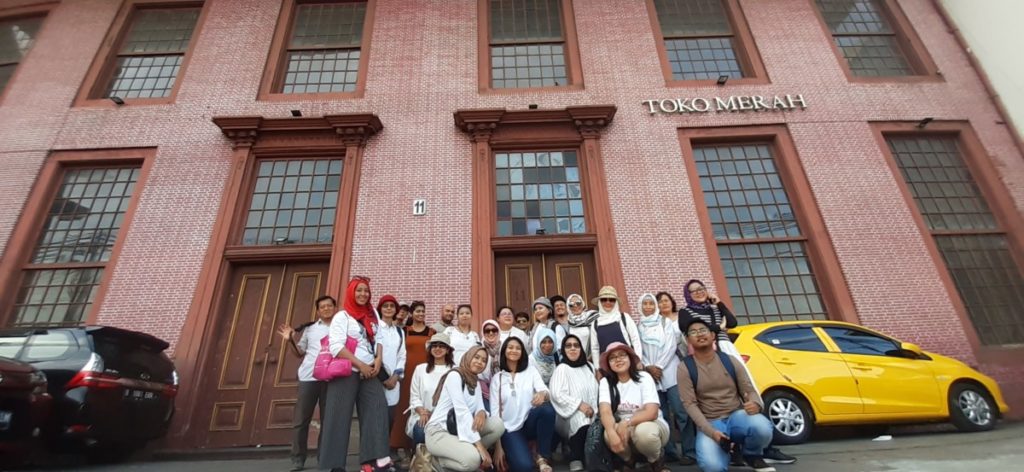
From the Intan City Bridge, The journey continues towards the Red Shop. Built in 1730, this old building was once the residence of Governor General Gustaaf Willem Baron van Imhoff.
The name Toko Merah was given based on its function as a shop owned by Chinese citizens, Oey Liauw Kong in the 19th century. Giving the word red based on the color of the front wall of the building that is painted red heart directly on the surface of the non-plastered bricks.
Many tourists take pictures there. I and the participants also took pictures before returning to the gathering point in front of the Bank Indonesia Museum. The trip using ontel ended here and we distributed souvenirs to ontel cyclists.
All participants seemed satisfied with the day's tour. As a driver, this certainly makes us happy. See you on the story of IHH's next historic journey, friends!

